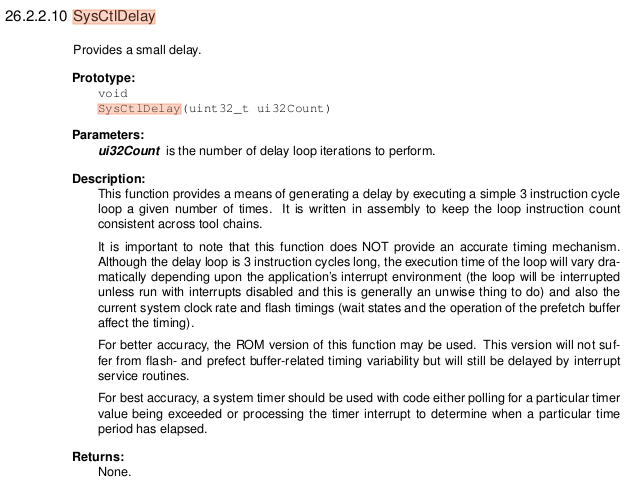Other Parts Discussed in Thread: EK-TM4C1294XL
Tool/software: Code Composer Studio
could anyone explain how to achieve 100,500,1000 ms delay time . for this 120MHz clock.
g_ui32SysClock = MAP_SysCtlClockFreqSet((SYSCTL_XTAL_25MHZ |
SYSCTL_OSC_MAIN |
SYSCTL_USE_PLL |
SYSCTL_CFG_VCO_480), 120000000);


